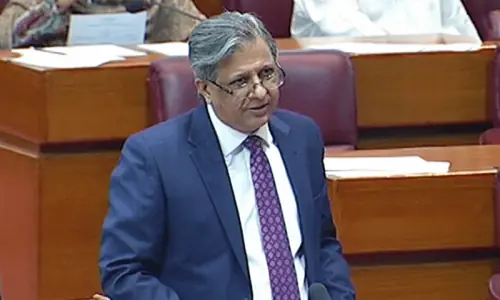THANKS to a shared cultural history, Pakistanis and Indians have many things in common. Our love for cricket and Bollywood movies is perhaps among the most obvious. One of our less appealing affinities is an unfortunate inclination for chewing gutka. An addictive mixture comprising betel nut, lime, catechu, flavourings and tobacco, gutka is a health hazard known as the primary cause of oral cancers. Appropriately enough, the government of Sindh banned its sale and purchase in the province in late 2011. Over 20 states and four union territories in India have also banned gutka.
However, the substance still finds a ready market in Pakistan, which leads unscrupulous individuals to try and circumvent the ban. On Wednesday, five containers of Indian-manufactured gutka/paanmasala were confiscated at the Karachi port. The consignment, worth a staggering Rs130m, had arrived via Dubai on “fake documents” showing the contents as building material. Locally produced gutka is also easily available in Karachi, particularly in low-income areas. The statistics are sobering; recent studies indicate that the incidence of oral cancer in Pakistanis is among the highest in the world. Children are particularly vulnerable because of the substance’s easy availability, attractive packaging and low cost. According to medical experts, the chances of gutka addiction among children leading to the pre-cancerous condition, submucous fibrosis, are 400pc. Given these facts, and the health burden this entails on the country’s limited resources, the laxity in enforcing the ban on gutka is indefensible. Also, India should ensure that gutka manufacturers in that country — perhaps out of work after the clampdown — are not able to dump their toxic product in Pakistan. That’s not the kind of cross-border cooperation that would do anyone any good.



























